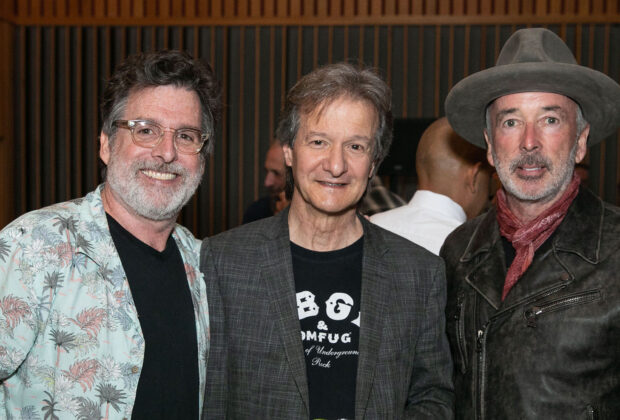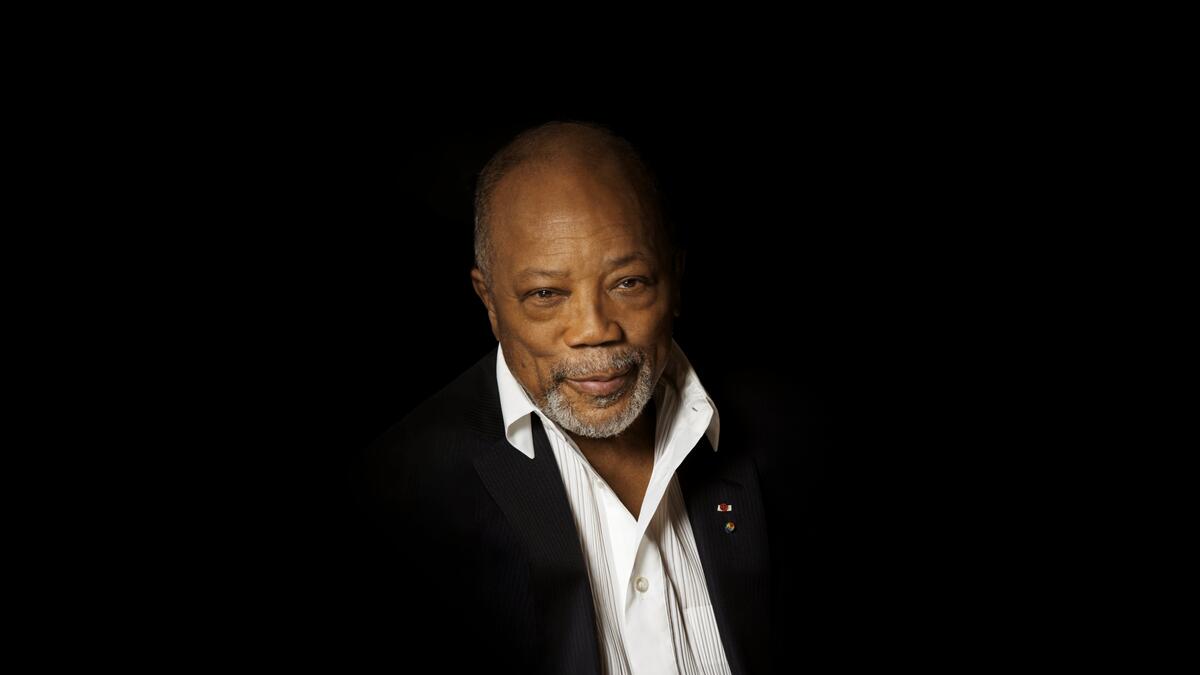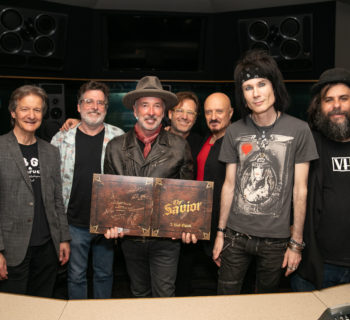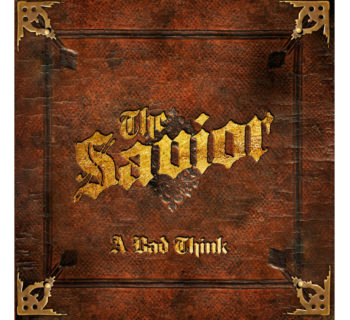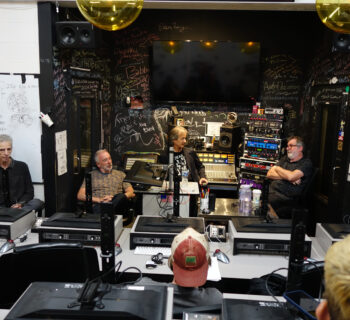A Bad Think, a musical project led by prolific singer, songwriter, multi-instrumentalist and GRAMMY®-nominated artist Michael Marquart, recently released its eleventh studio album titled Short Street, which is available in both standard stereo and a beautifully rendered Dolby Atmos® immersive mix. The album is now available for high-resolution stereo streaming on all major platforms; find the lossless Dolby Atmos download on ImmersiveAudioAlbum.com. Additionally, a video for the album’s single “Hammer and the Plow” is now available – view it at https://youtu.be/BAl7jEbgxeI.
Marquart produced the album with his longtime collaborator multi-GRAMMY-winning producer/engineer Dave Way (Fiona Apple, Echo In The Canyon, Michael Jackson, Macy Gray). The album’s sonic textures and intricately layered instrumentation were expertly mixed in stereo and Dolby Atmos by multi-platinum award-winning mix engineer Bob Clearmountain (Bruce Springsteen, Bryan Adam, David Bowie, The Cure, INXS). This trio previously collaborated on A Bad Think’s 2019 release The Savior (which garnered a GRAMMY nomination for Best Immersive Album), as well as its follow-ups. Short Street was mastered in stereo by multi-GRAMMY winner Bob Ludwig (Led Zeppelin, Queen, Jimi Hendrix), and mastered for immersive Dolby Atmos by GRAMMY winner Emily Lazar and GRAMMY nominated Chris Allgood at The Lodge.
Inspired by Marquart’s childhood in a small town in Wisconsin, the album weaves together a tapestry of introspection, vulnerability, and the resilience of the human spirit. With 12 beautiful tracks, Marquart’s poetic lyrics evoke a sense of longing, reminding us that even in the darkest of times, there is a glimmer of hope that can guide us through. The album’s sound is an evolution of the style that Marquart has developed over A Bad Think’s recorded output. “I would categorize where I’m headed and the music that I’m writing and doing now as a cross between country, folk and rock,” notes Marquart. “I come from a progressive rock background, so arriving at a more straightforward style has been a years-long process for me. For this album, these are simple songs, very easy to listen to. And I think there is a humanity at the heart of this record. When I was writing, I was thinking about my mother passing away, and my dad’s and sister’s health struggles. It made me look back in a retrospective way. Personal but also hopefully universal. So to complement that we went with a lot of earthy, acoustic sounds, and I think we were able to capture a rootsy vibe that really suits the material.”
Tracking took place at both of Michael’s private studio spaces – one in Virginia Beach (with an API analog console) and one in Malibu (with a vintage Neve console). But one element that was identical at both spaces was the vocal chain. “I have the same 1073 Neve Mic Pre, Telefunken ELA M 250E microphone and an old vintage LA-2A. That’s what I’ve used for my vocal chain on the last few albums, and I make it identical in both locations so there is no variation in sonic character.” Also used were many vintage guitars from Marquart’s extensive collection, including a 1958 Gibson Les Paul burst, a 1962 Gibson Les Paul (SG), a custom-made Martin 00045, a 1954 Fender Stratocaster, and a Gretsch 1955 Round Up.
Marquart and Way get together regularly to keep engaged with the creative process and their collaborative journey. To kick off the production process of a new album, Marquart begins with bare-bones demos, which he shares with Way – and they also review older material to bring out existing gems or uncover new ideas for those tunes. “When we meet, we often have the chance to review older songs that we haven’t completed yet,” notes Way. “We usually have a group of songs that are left over from the previous album, things that maybe we didn’t think were right for that particular group of songs, and we’ll go through those first to see if there’s anything there that we think we might want to look at again, reinterpret or include, and see if there’s something about it that works for this next group of songs.” In this case, the album’s core themes of childhood, nostalgia and growth solidified during this process. Way recalls, “I think it started to become apparent to Michael what this album should be, and that guided the completion of the new songs and the sonic approach we took for the whole project.”
After Marquart and Way decide on which songs to focus on, they start building the tracks. And once there is a solid foundation for the session, the project’s additional instrumentalists can start contributing – which usually happens remotely at their own studio spaces. “It’s not a secret now: Dropbox, the cloud, and other online tools have made remote overdubs not only possible, but many people’s preferred way to work,” notes Way. “Getting everyone together in a room is great too, but there is nothing like the convenience of doing your own overdubs on your own time, in your own space.”
Principal contributors included Matt Chamberlain on drums, Dan Rothchild on bass, Kirk Hellie on guitars and Phil Shenale on keys (all returning from previous projects), along with others. “These are my guys,” notes Marquart. “I’ve been searching for all these years to try and find the right chemistry and the people that understand my music and how it’s supposed to sound, and we’ve arrived. I don’t tell them what to play. They are incredibly gifted and know what the songs need, so Dave and I have relatively little tweaking to do to refine the arrangements once we have these guys’ contributions.” Additional overdub sessions took place at Dave Way’s Waystation Studio in Laurel Canyon, including with guitarist Greg Leisz, who provided both lead and pedal steel parts.
Once again, Marquart and Way went back to Bob Clearmountain, who has mixed the last four A Bad Think records including X, which was the first A Bad Think record Clearmountain mixed in Dolby Atmos and stereo. “Michael is a great artist who always has wonderful music that is really fun to mix,” stated Clearmountain. “He gives me a lot of interesting elements and the freedom to create a mix from, and that’s why I do it because I enjoy it and it is always one of the more fun projects to work on. Michael’s material is unique, very well produced and recorded, and the musicianship is first class. I really hope more people hear it, enjoy it and get hip to who this guy is and how talented he is.”
When working on Short Street, Clearmountain always started with the stereo mix and then worked on the Atmos mix as a parallel process. “I first get a good stereo mix happening and while I’m doing the stereo, at some point as it’s coming together, I start thinking about, ‘Oh, where am I going to place things in Atmos world?’ And I just start assigning channels while listening to the stereo. I am able to work from the routing buses on my SSL desk – I have a whole group of them that I use for the Atmos channel assignment, so I’m basically able to accomplish that while I’m doing the stereo. Once I get a pretty good sounding stereo mix going, then I switch my monitors over on my Apogee Symphony I/O MkII and I start listening in Atmos and then refining it. Just like the last record, I started with Matt Chamberlain’s drum tracks in a stereo mix, and then move on to Atmos, taking other elements like ambient room mics and put them in the back or overheads. Michael’s music really works well in the immersive format.”
When asked how the album is best experienced, Marquart remarks, “I believe that if someone gives this album an earnest listen, any way they experience it is going to be enjoyable. The stereo mix is great. Good for headphones, car systems, whatever. But if there is an opportunity to listen to the immersive mix in a true, properly calibrated Dolby Atmos environment, then I think it will be a really special experience. I’m so proud of this album and what we’ve been able to accomplish with it, especially with the immersive mix.”
To learn more about A Bad Think and their album Short Street, please visit abadthink.com, Vevo/YouTube or check out @abadthink on Instagram, Facebook and Twitter.
About A Bad Think:
A Bad Think is a musical project led by prolific singer, songwriter and multi-instrumentalist Michael Marquart, creating deeply introspective and emotionally charged experimental rock music. Marquart has an illustrious musical background, having collaborated with industry giants and garnering particular acclaim for the surround sound album The Savior, which garnered a 2020 GRAMMY nomination for Best Immersive Audio Album. His unwavering commitment to his craft has resulted in his latest album, Short Street, a beautifully personal record that pushes the boundaries of technology with the Dolby Atmos format.
Pictured L-R: Dave Way, Bob Clearmountain and Michael Marquart.
Photo by Chris Schmitt Photography.

